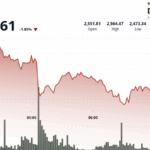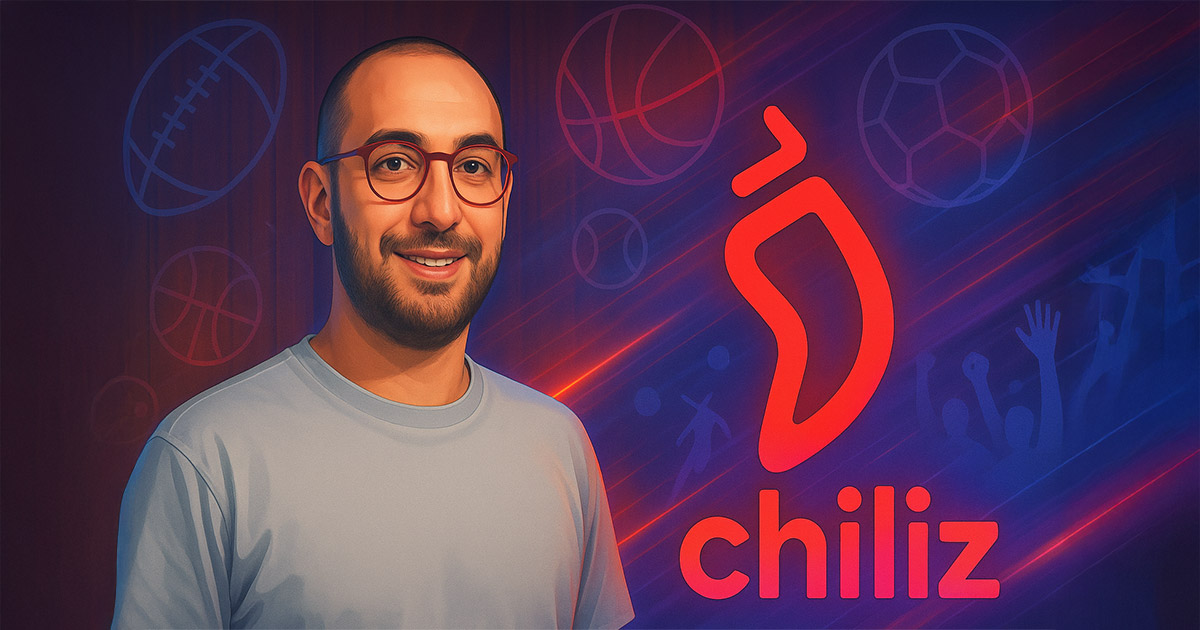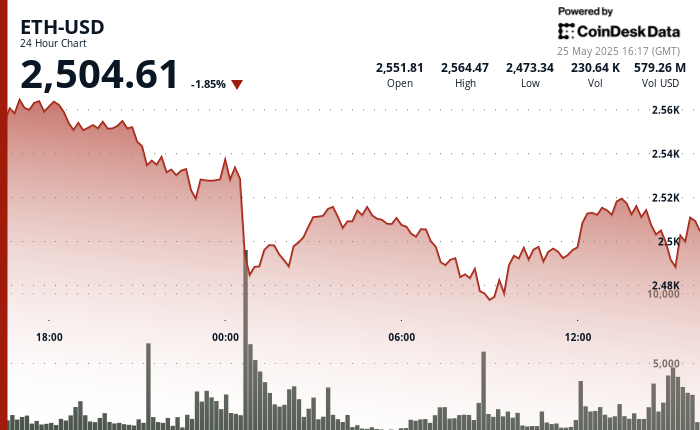
Discussing brews, nightlife, and $80 million losses with SportFi innovator Max Rabinovitch from Chiliz
Talking with Max Rabinovitch, the Chief Strategy Officer of Chiliz, at a crypto conference is surprisingly relaxed, resembling a casual meetup at a bar rather than a formal interview. After the intense pace of TOKEN2049 week, engaging in this laid-back conversation is refreshing.
During our discussion, it’s hard to believe Max frequently navigates some of the most influential boardrooms, negotiating multimillion-dollar contracts and shaping discussions around sensible regulations in the crypto space.
In contrast to the plethora of complex decentralized applications and convoluted solutions meandering around the industry, Chiliz has a straightforward mission: being the leading blockchain for sports, delivering tangible benefits for sports enthusiasts globally. Max puts it this way:
“We occupy a unique niche in the crypto landscape. Our goal was never to be a universal blockchain competitor alongside Solana or Polygon; we simply aimed to excel in our specific domain.”
Max acknowledges the challenges of being part of a minority group developing consumer-oriented entertainment products. Retail investors usually gravitate toward the allure and speculation of the latest trends, from DeFi ventures to NFTs.
“To engage users, you have to devise innovative methods that encourage them to not only participate in your ecosystem but also to engage with it as consumers.”
Chiliz’s unique selling point remains robust despite not fitting into the popular narrative. When people suggest that Chiliz ought to delve into NFTs, Max counters:
“The market cap and daily trading volume of our fan tokens surpass the combined trading volume of all NFTs globally. Clearly, we’re doing something right.”
Unlike flashy projects boasting yield farming, liquid staking, or meme coins, Chiliz stands out by effectively penetrating the mainstream market and becoming synonymous with the world’s most popular sport, followed by approximately 73% of the global population. The platform has partnered with prominent football clubs such as FC Barcelona, Paris Saint-Germain, and Manchester United.
“With over 75 unique token economies, our top 20 are thriving. Over time, Chiliz has become synonymous with football tokens. When the World Cup approaches, Chiliz (CHZ) always sees a surge.”
Beers, bars, and QPR
As an American discussing football, it’s clear that Max has adapted to European culture over time, no longer making the distinction between “football” and “soccer.”
When I inquire about his favorite team, he grins. I anticipate a response like Manchester United, Real Madrid, or another major club that usually pulls in foreign fans. “It took me some time,” he admits. “Growing up in the U.S., we were all about the other type of football.”
Max’s love for the game blossomed while he was in Malta, the hub of iGaming in Europe, during his poker and gaming journey:
“I had no friends initially. My first friend was this British guy. Moving to a new country often leaves you with limited choices: either stay home or join the British guy who just wanted to head to the bar to watch Queen’s Park Rangers play. I unintentionally became a fan of theirs.”
Since then, Max has remained true to the team. With “nothing else to do,” he spent his first months in Malta, accompanied only by the British QPR supporter, frequently enjoying beers and football in local bars.
“We watched every single match that season,” he laughs. “We visited the same bar for each game. It was a great introduction to having a British friend.”
I can relate, fully aware of the necessity to embrace football and develop a taste for Heineken when mingling with British friends. What began as casual nights in Malta unknowingly laid the foundation for Max’s venture into SportFi and the growth of the Chiliz chain.
Finding a product market fit for sports
Since its inception in 2018, Chiliz has established itself as a significant player in the crypto landscape. Max quickly points out that while Chiliz is recognized as mature in crypto terms, it doesn’t hold up against traditional businesses.
“People label us as a ‘Dino coin’ or a dinosaur project… I mostly find it amusing. It’s interesting to consider an industry where merely surviving for seven years—five in a lively state—is a mark of longevity.”
It’s easy to forget that life outside the crypto bubble continues, I note, and he chuckles, “Yeah, it’s like, congrats, you’re still in the game.”
The relentless speed of the industry could make years feel like mere months, exacerbated by a slew of scandals and the failure of 90% of ICOs since Chiliz’s launch. Yet, being here today speaks volumes. In any case, durability remains an exception rather than the rule.
“We’ve experienced the same ups and downs as others, yet we’ve managed not just to endure but to sustain a user base, liquidity, and ongoing interest in our tokens.”
Chiliz has transitioned from a permissioned chain focusing on token membership experiences via Socios.com to a leading decentralized Layer 1 blockchain, pioneering the SportFi space with 2 million unique wallet addresses to date.
“Socios surged beyond our initial expectations,” Max admits. “Chiliz gained a lot of traction in 2021 when fan tokens exploded during the pandemic, but our goal was to create it as proof of concept to demonstrate there’s a product market fit in sports.”
The real value of branded fan tokens
While blockchain isn’t the primary selling point of Chiliz, its presence in Socios is quite evident. Users directly engage with blockchain elements when utilizing Socios.com.
“We’ve never attempted to disengage the crypto experience,” he states. “In my view, we’re among the few projects to create a centralized DAO with a voting and rewards system using fungible tokens, believing that’s what would scale and adapt if we found people weren’t interested in voting on team matters, preferring a staking model instead.”
Max elaborates that the uniqueness and utility of branded fan tokens stem from the team’s dedicated efforts rather than any inherent technical advantages.
“The real strength of Chiliz lies in its platform and the logistics and customer support teams ensuring user satisfaction, handling ticketing and merchandise, and so on. These can shift dynamically. The token can easily transition between different use cases if necessary.”
An earlier chat with Tezos co-founder Arthur Breitman comes to mind, where he noted that adaptability is key to Tezos’ resilience in varying cycles and narratives.
“We assumed adaptability wouldn’t be feasible—either through flexibility or scalability—if we opted for just an NFT collection, and I stand by that.”
Keeping it simple with experiences money can’t buy
From exclusive limited-edition NFTs to player meet-and-greets, what do fans most frequently seek to purchase using their branded tokens?
“In our early days, we aimed for elaborate experiences, like meet-and-greets or even flying with the team on their charter plane. While these experiences were impressive, they weren’t scalable. We also explored digital merchandise and rewards to cater to remote fans who could not attend in person.”
However, the Chiliz team recognized that they were “overcomplicating things.” Ultimately:
“Fans simply want tickets. They desire those unique experiences that money can’t buy, like attending finals, Champions League matches, and significant games. The crux of fulfilling fan desires is allowing them to see their team play. So, we concentrated on scaling this initiative, giving away 12,000 tickets last season.”
Max has learned that while launching a Layer 1 network comes with its challenges, and competing against highly speculative products is demanding, simplicity—centered on sports passion and fan engagement—is Chiliz’s most crucial element.
The pain of losing an $80 million investment
When fan tokens and experience offerings soared in 2021/2022, Chiliz stood at the threshold of tapping into the largest sports market globally, investing over $80 million to realize this vision. However, when FTX collapsed, it sent shockwaves through the entire crypto industry and dashed Chiliz’s major league aspirations.
“We collaborated with the majority of NBA teams, 28 in total. We partnered with 13 NFL teams, half of the NHL, and all of MLS. We were on the verge of launching both Socios as a product and fan tokens for the North American market across those leagues and teams, which would have required doubling our organization and resources.”
Yet circumstances shifted, and the regulatory chaos stemming from the FTX fallout diverted Chiliz from its path.
“FTX’s spending on stadium rights, sponsorships, and their lobbying efforts tarnished the reputation of crypto within sports and among regulators. It cast a long shadow over the industry.”
Despite all the initiatives halting, the relationships cultivated by Max and Chiliz’s founder and CEO, Alex Dreyfus, continued to develop.
“All those leagues maintained a positive outlook on us. They regarded us as the more sensible choice since we didn’t present extravagant financial promises or guarantees regarding profits. Our business model resonated, yet they advised us to reconnect in two to five years, or whenever the regulatory landscape changes.”
“Thus, we spent the next couple of years untangling contracts and settling previous obligations without any returns. It was financially and operationally draining.”
The ‘right time’ to re-enter the U.S. market
Considering the shift in U.S. politics, what are Max’s insights regarding the Trump administration, and how does the easing regulatory climate in the U.S. bode for Chiliz’s growth prospects?
“Both Alex and I firmly believe the U.S. is the future of our business. This market stands as the largest sports market globally, alongside being the premier entertainment hub, and we’ve heavily invested to make our mark in the U.S.”
During Trump’s inauguration weekend, he and Alex traveled to D.C. to gauge the new administration’s implications for their endeavors.
“Initially, we wanted to understand how the new political landscape would affect us. Could we look at reentering the market? As time passed, it became increasingly evident that this was the optimal time to resume our efforts, prompting discussions with leagues and teams.”
Recently, Alex even met with SEC officials, as well as Bo Hines at the White House, a young former football player involved in Trump’s crypto policy team.
“We decided it was time to stop dwelling on our losses. Losing $80 million in investments is substantial, but it was beyond our control. What stung the most was not being able to launch our product successfully.”
When can we anticipate Chiliz making another attempt to launch in the U.S. sports market? He shrugs, smiling. “I can’t predict the future,” he quips…
“However, it seems probable we’ll see that happen within the next year, given the fruitful discussions we’ve had with the SEC and those focused on crypto in the administration. It appears they’re inclined to gradually open these doors.”
…And the Chiliz team is ready to kick off, poised for action.


















Post Comment